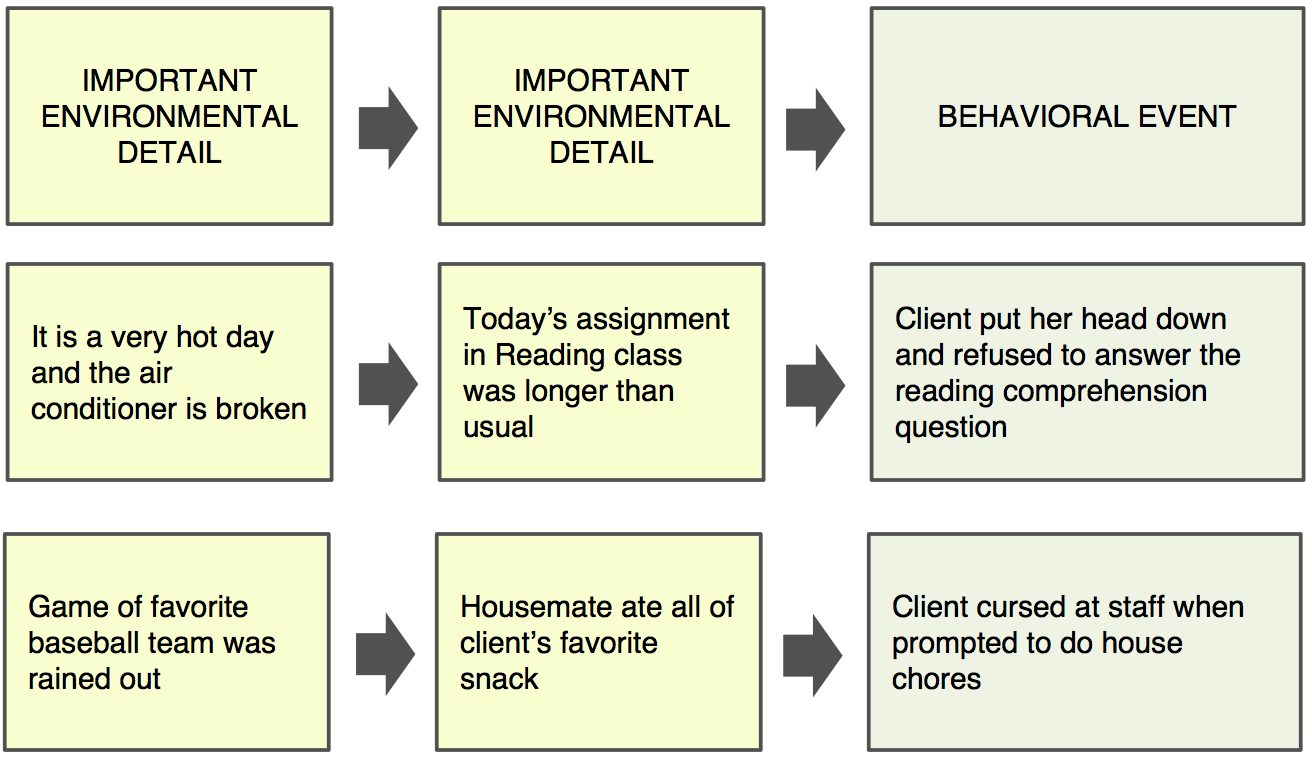Documenting Important Details
 Environmental descriptions include the context surrounding a behavior. These details are important so that the behavior may be understood in context. Consider the examples below
Environmental descriptions include the context surrounding a behavior. These details are important so that the behavior may be understood in context. Consider the examples below
Tina threw her book and put her head down on the desk.
While working on a difficult math worksheet, Tina threw her book and put her head down on the desk.
The second example provides more information about the context of the behavior. Consider you have a client that you work with in the afternoon while another RBT works with the client in the morning. When you arrive to see the client, you begin by reviewing the session notes from the morning. You will be spending the next four hours with the client, so any information you have on how his days is going could help you in providing services. Consider the following:
- client missed a dosage of mediation
- there is a substitute teacher
- client is fighting with his best friend
- client was sent to the principal’s office earlier in the day
- client complained of a headache all morning
Information about events that affect the client may be useful when providing services, even if they are unrelated to behavioral objectives. For example, the headache is important because it could affect how the client responds to difficult situations. While a client may be patient with peers, when she has a headache she may be more readily annoyed and have difficulty getting along with others.
Consider the chain of events below. When documenting these events in your session notes, why is it important to mention the broken air conditioner and other environmental details?

Determining Which Details Are Important
Consider the details of a day. Many events and details occur but not all should be recorded. Use these guidelines to help decide whether a detail from an account should be recorded.
- The event occurred just before a target behavior
- The detail has something to do with the client’s health (such as complaints of feeling sick)
- The detail has some affect on the client’s mood (such as disappoint event or fighting with a friend)
- The detail described some variation in the client’s daily routine (something was canceled, substitute teacher)
